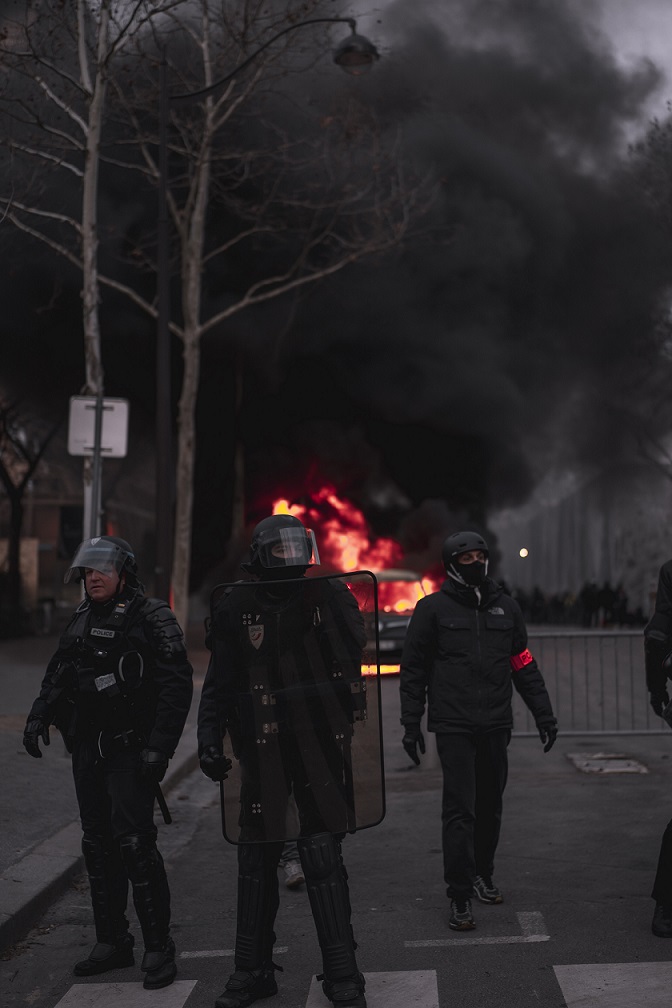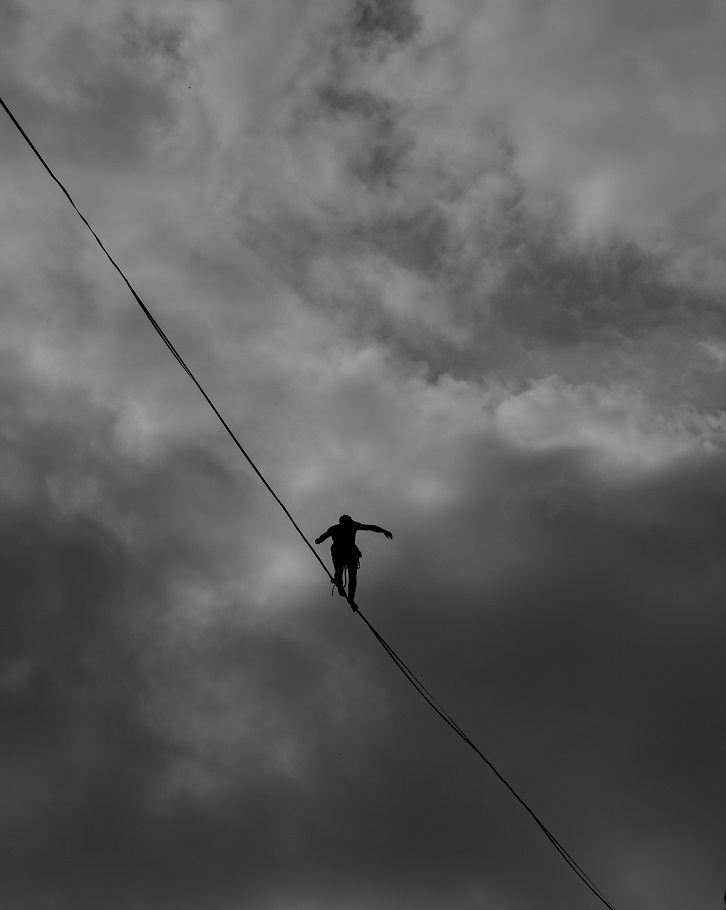The simultaneous nature of an economic crisis that has still not been overcome, a pandemic with tragic global consequences and the armed conflict in Ukraine explain the feeling of uncertainty felt all over the planet at the moment.
 Juan Diego García
Juan Diego García
Apocalyptic voices are multiplying and terrifying predictions can be heard on all sides.
Have we reached an almost final crisis of capitalism? Is there any sign of an opportunity, this time, to ‘storm the heavens’ and emancipate humanity?
Or, conversely, could the left’s obvious weakness and the greater power of capital mean we face a rebirth of fascism and, at best, that we are about to see the application of palliatives to calm the growing social protests without significantly affecting the neoliberal model in place throughout the world? Will the Ukraine conflict lead to a nuclear war that could jeopardise the very existence of the human race? Making a realistic assessment is no easy task but we could start by underlining some elements that could alleviate the current harsh tension and imagine less dramatic solutions.
Indeed, faced with highly critical situations the capitalist system has found solutions which, if they did not resolve the contradictions inherent in its nature, nor did they lead to its definitive collapse. In some cases matters proceeded through violence and the denial of capitalism’s own liberal and humane values while others proceeded through forms of redistribution of wealth, thereby managing (with quite a lot of success in some countries) to resolve, partially and temporarily, the contradiction between vast overproduction and very socially uneven consumption.
 There is no reason to think that forms of state control of the market are not applicable today; the proposals of parties and governments (especially from the metropolises) seem to be moving in that direction so that the large monopolies that have made stratospheric profits during these crises give up some of their earnings, allowing a reduction in social tensions which are running at worrying levels currently.
There is no reason to think that forms of state control of the market are not applicable today; the proposals of parties and governments (especially from the metropolises) seem to be moving in that direction so that the large monopolies that have made stratospheric profits during these crises give up some of their earnings, allowing a reduction in social tensions which are running at worrying levels currently.
In ‘the poor world’ that social discontent is helping sectors of the left and centre (in Latin America, above all) to enter government and promote similar reforms as well as tackling other demands that the national question demands here.
It is not about ending capitalism but introducing reforms that contribute to overcoming the vast inequality that prevails.
The big creole bourgeoisie, just like the metropolitan bourgeoisie, is watching events closely before deciding between reform or simply opting for fascism. It is assured (for now) of firm support from the military, along with the social and electoral backing of significant sectors of the population, as is proven in practically the whole continent (Brazil was an example of this in its recent elections).
In the metropolises the big bourgeoise can count on a far right in the ascendancy but still not electorally decisive. There, it is the parties with fascist tendencies, both in Europe and in the United States (Trump), that consider the political model of representative democracy to be spent and shout fascism’s traditional slogans; they seek the support of certain popular sectors and of small and medium-sized landowners who, undoubtedly, see themselves as affected by free trade and neoliberal globalisation.
Their influence on the military and on significant groups of the judicial and legislative power is substantial and, in addition, they have the support of much of the mass media.
Although the economic crisis has not been brought under control, the dominant class still has scope to effect a certain social redistribution of wealth and so avoid falling into a high-risk situation.
 In the rich world the bourgeoisie possesses vast material resources; on the periphery of the system, because although in so many places popular forces have even managed to take over the government, the creole bourgeoisie retains control of the principal levers of the economy and, of course, has the backing of the metropolises (USA and EU), ready to help in case of need.
In the rich world the bourgeoisie possesses vast material resources; on the periphery of the system, because although in so many places popular forces have even managed to take over the government, the creole bourgeoisie retains control of the principal levers of the economy and, of course, has the backing of the metropolises (USA and EU), ready to help in case of need.
Here the instrument has always been the military coup, direct armed intervention or blockades and sabotage of the economy, still so dependent on the metropolises. Although the political balance of power favours the left more in Latin America than in the metropolitan centres, its greater weakness is determined in many ways by relationships with the external market and by the not inconsiderable strength of the creole right, which explains the great prudence and pragmatism with which those progressive governments seek both internal reform and a different position in the world framework.
The pandemic seems to be basically over, leaving behind it situations that in the poor world are loaded with enormous drama (in Brazil, to look no further) and which in the whole planet show the huge risks of leaving the management of public health in the hands of the market, another sinister legacy of neoliberalism.
The conflict in Ukraine is an expression of the struggle between the traditional powers of the capitalist system and the emerging powers, Russia and China particularly.
 It is very difficult to predict how the conflict will evolve but only unexpected and uncontrolled events would lead to the feared nuclear war.
It is very difficult to predict how the conflict will evolve but only unexpected and uncontrolled events would lead to the feared nuclear war.
But there are also some elements that allow us to foresee a peace agreement in the medium term.
Taking an optimistic view, the most reasonable thing would be for the West to agree to desist from its strategy of promoting further NATO expansion (across the globe) at the risk of the Chinese and Russians and their (ever more) allies and friends starting to replicate that aggressive policy – which is the main reason for the conflict – with a military and strategic presence of these emerging powers in the world framework.
Moreover, it is even possible that we will witness a reordering of the so-called international institutions, limiting the West’s power and leaving the periphery countries more space to influence decision-making, at present exclusively in the hands of the rich countries.
(Translated by Philip Walker – Email: philipwalkertranslation@gmail.com) – Photos: Pexels and Pixabay












.jpg)












